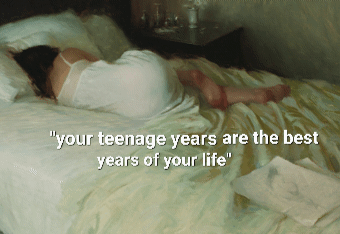#adolescence
Text
I don't know who needs to hear this, but especially with the end of the school year coming up soon, and a bunch of people about to leave high school or about to leave college, I just wanted to say:
Being an adult can be really nice, actually!!!
Like, okay, yeah, life can be fucking stressful sometimes, and there's definitely an annoying amount of paperwork.
But me and just about every single adult I know will agree: I would never choose to go back to being a teenager, even if I somehow could.
Insert obvious disclaimer that nothing is universal. But for people worried about aging or graduating into the next chapter of life, here's some words of reassurance:
When you're a teenager, your brain is extra mean to you. Like, neurologically. All of the changes it's undergoing really, really increase rates of depression/anxiety/etc. A lot of the time, literally just not being a teenager anymore is really good for your mental health
Less than five months out of high school, everyone I knew my age was like "Thank fuck we're no longer in high school." Once you leave high school and adolescence there's really just such a dramatic drop in petty bullshit. Shit that would have been a huge social humiliation or gossip in high school is really often just like, "Hate that for you, man." Boom, done.
When you're a teenager or a brand new adult, you're encountering so many problems for the first time ever. When you're older, you just. Have learned how to handle a lot more things. You know what to do way more often and that builds confidence
When you're an adult, other people generally don't care if you don't do things perfectly, because jobs and life don't work like grades. This was such a trip to learn, honestly? But when you are an adult or have a job the bar for success is usually just "Did you do the thing?" or "Did you do the thing well enough that it works?" or "Did you show up to work for your whole shift and look like you were doing things?"
Similarly, if you're about to graduate college and you're really stressed about it, fyi just about everyone I knew in college ended up very quickly going "wow, 'real life' is way easier." Admittedly I went to a school full of very stressed out perfectionists and the like, so I can't promise this is universal, but there's a very real chance that life will in many ways get easier when you graduate
WAY MORE CONTROL OF YOUR OWN LIFE
Literally I cannot overstate that last point. As an adult, you are (barring certain disabilities or shitty circumstances like abusive family/the criminal justice system/etc.) able to make most of your own decisions. If you want to rearrange your furniture, you can. If you want to eat tater tots at midnight, you can. If you want to get yourself a little treat, you can. You can sign contracts and make your own legal and medical decisions and not need a parent or guardian signature for just about anything ever again
You generally learn how to give fewer fucks
The people around you have also generally learned how to give fewer fucks
Even when things are shitty, being able to choose what kind of shitty a lot of the time can really be worth an awful lot
#not news#life#advice#hope#adolescence#teens#adulthood#adulting#growing up#getting older#life advice#abuse mention#autonomy
1K notes
·
View notes
Text
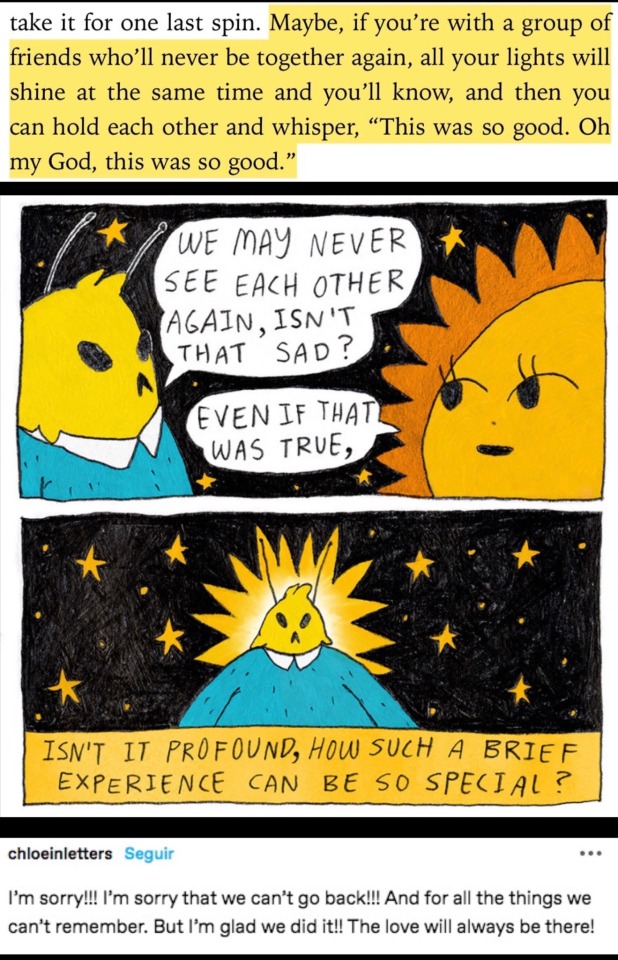
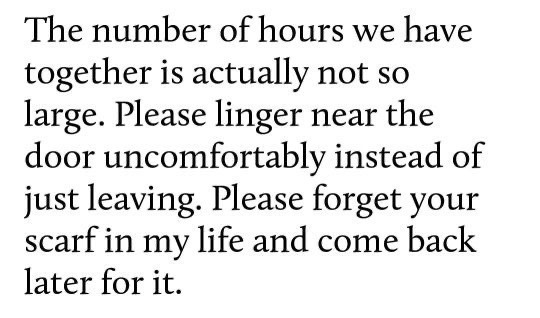





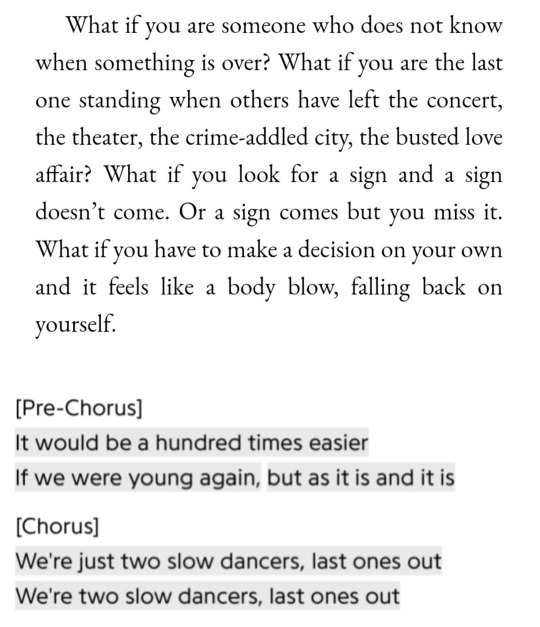


what is adolescence if not leaving and being left?
1. iain s. thomas | 2. alison zai @alisonzai | 3. @chloeinletters | 4. mikko harvey | 5. fleetwood mac | 6. the breakfast club (1985), john hughes | 7. lorde | 8. miranda july | 9. richard siken | 10. @mavra-matia | 11. homer | 12. amy hempel | 13. mitski | 14. katrin koenning | 15. freya ridings |
#high school as grief etc etc#web weaving#adolescence#leaving#parallels#quotes#words#on leaving#richard siken#mitski#lorde#freya ridings#the breakfast club#mikko harvey#fleetwood mac#iain thomas#mine <3#1k
4K notes
·
View notes
Text

Gerald Leslie Brockhurst (1890-1978) - Adolescence
1K notes
·
View notes
Text
im not a huge adolescencehead if im being honest but granted ive only seen it once. that said i love how utena literally turns into a car. they rly said “fuck subtlety utena is the vehicle for anthy’s revolution” and then they they hit akio’s already dead washed up cringefail ghost and he exploded into a cloud of roses and it ruled.
#adolescence#u#utena#anthy#akio#utenanthy#hits you with my car and hits you with my car and hits you
76 notes
·
View notes
Text

"We look at the world once, in childhood. The rest is memory."
— Louise Glück
#nostalgia#family#childhood#adolescence#aesthetic#vintage#old school cool#style#beauty#kids#scooter#moto#70s style#70s aesthetic
62 notes
·
View notes
Text
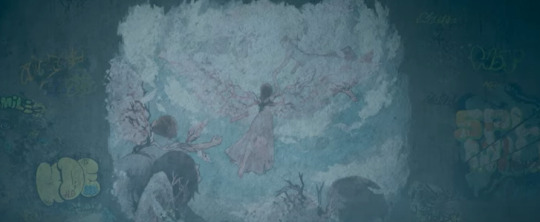



"Helping girls to blossom and show their inner beauty, as well as coloring this ugly city a little. Just like and comment!" 🌸📱❤️
- C.B. (Cherry Blossom), Maya Aco Hindenburg
#silent hill#silent hill the short message#silent hill short message#the short message#cherry blossom#street art#mural#artistic expression#Game#social media#Adolescence#Likes#twitter#instagram
72 notes
·
View notes
Text
Last night I dreamt that we were young again
and loved each other fiercely with our bodies.
It was in the midst of ruin even then,
the roof collapsing in, dust and debris all around.
Ah but we were fearless in the face of time.
— Moyra Donaldson, "Fearless" from her collection 'Carnivorous’ (Doire Press, January 1, 2019)
42 notes
·
View notes
Text
adolescence is just a pendulum that swings between longing for the past and longing for the future
#never staying in equilibrium#never fully satisfied#nostalgia#adolescence#nostalgic#childhood#sentimental#quotes#autumn#dark academia#teenagers#high school#coming of age
101 notes
·
View notes
Text
Anon wrote: Hello mbti-notes. Sometimes I (INFJ) come across people, both kids and grown-ups, who insult my appearance and try to humiliate me in front of other people, and I don't know how to handle the situation besides keeping a stone face and keeping it together until it ends and I find an isolated place to let the tears fall out.
I'm still greatly affected by this despite being already past my teenage years. As I said, I don't know how to effectively react. One of the ways frequently suggested is to pretend it doesn't affect me, but it does affect me so I would just be lying to them and myself and in turn feel even worse for not expressing my real emotions, but at the same time these type of people are shallow, and it would be pointless and counterproductive for me to express my real feelings without them dismissing me or taking advantage of my weak spots again.
When I don't react properly and don't say anything to stand up for myself, I start to feel even worse about myself for allowing them to disrespect me, but I am also at loss on how I should deal or react in this type of situation. I don't know how to properly deal with people like this, what to say to them, how to stand up for myself and not allow myself to be humiliated in front of everyone.
When it comes to any other topic, I know how to call people out, but when it comes to my appearance I just freeze, my mind goes blank and I don't know what to say, especially when I am dealing with middle school kids. As I said, if I play it cool, I feel even worse because they just reopened a scar inside me and I don't know how to stop the bleeding.
I tried to address my core thoughts and beliefs on beauty and disprove them, and while I dismantled my automatic toxic beliefs, it still doesn't fundamentally work, the pain I carry inside still doesn't go away, it still doesn't heal and I still feel offended and degraded, so I'm at loss on what to do now.
Getting support from my family is not an option. Getting support from my friends didn't work. I was bullied for my appearance in middle school, and after that I refused to even think or confront the issue, I currently want to confront it and heal from it but I don't know how or what exactly am I supposed to do to heal the hurt and stop getting hurt over the same thing over and over again. It's not feasible for me to have a mental breakdown every time this happens.
Right now my ultimate goal is to obtain a high self-esteem, so I need to find a way to deal with this issue. I want to stop getting hurt when people insult my looks, learn how to effectively respond when it happens, make it clear that I will not take disrespect and learn how to make people back down and respect me.
-----------------------
I'm sorry to hear that you've had to experience such terrible bullying. Disproving core thoughts and beliefs is very important but isn't likely to be enough in your case for two reasons:
Like it or not, feelings matter a lot to you as a Feeler, so until the negative feelings get sorted, the problem will persist. And only dealing with the thinking side but not the feeling side runs the risk of triggering self-sabotaging Ni-Ti loop patterns. You've basically only implemented half the solution, so the results will suffer accordingly. (Although, I do doubt how successful you were with the core thoughts and beliefs as well, which I will address later.)
Bullying is a recognized form of trauma. When you're living with significant past trauma that hasn't been properly addressed and resolved, then the problem goes far deeper than core thoughts and beliefs. You haven't gotten to the heart of the matter yet.
Bringing up your teen years is important because those are formative experiences, and negative formative experiences often lie at the root of adult self-esteem issues. Adolescence is a critical time for learning good social skills. Because teenagers are only in the early stages of learning, the way they think about socializing tends to be overly simplistic.
For example, to the average teenager, successful socializing is defined simply as "fitting in", and they jump to the conclusion that the easiest way is to be like everyone else or get approval from those with status and power. This is why social contagion (the spread of attitudes, beliefs, emotions, and behaviors through the members of a group) tends to be much worse among teenagers. When they see someone else get social validation, they rush to do the same thing in order to obtain the same reward.
However, the fact of the matter is that each one of us is an individual, and there is a limit as to how far an individual can conform. If a teenager is unlucky and simply does not share many things in common with their immediate peers, they won't be able to "be like everyone else" no matter how hard they try. Worse, their attempts to fit in or obtain approval can be transparent and make them come off as pathetic and unlikable.
Not being able to find acceptance in adolescence means the goal of that stage of development remains unfulfilled, which can have a negative effect on ego development. Basically, it can keep a person stuck in the adolescent mindset into adulthood. The more they were denied social acceptance, the more desperately they may crave validation. This is one reason why some people crazily chase affirmation, attention, affection, praise, or social status, as though trying to fill a bottomless void. Or, if they believe it impossible to obtain acceptance for whatever reason, they might develop antisocial tendencies and live in deep denial of their social needs.
Conformity is an unsophisticated socializing strategy. It's the strategy people use when they live under a dictatorship because they don't want to stand out and get their head chopped off. Now, some might say that middle and high school life is very similar to living under a dictatorship, which is fair. Teenagers can be quite harsh in ridiculing and bullying each other into conformity. However, you're not a teenager anymore. As an adult, you have more intellectual capacity for nuanced thought, you have more freedom to get away from toxic people, and you have more resources at your disposal for learning healthier methods of socializing.
Conformity is ultimately a shortsighted strategy that produces negative long term consequences. Any time you desire or attempt to be like someone else, you are denying your individuality, which means you are actively stopping the individuation process. Individuation is a core concept in analytical psychology and considered the main goal of every human being. It is the process through which you bring together all the fragmented parts of yourself to become a whole person. Going against the main goal of life prevents you from living a fulfilling and meaningful life.
Individuation requires you to become more aware of how you define your identity. If you hope to become an adult in mind, not only in body, then at some point you have to be willing to expand your sense of self beyond the narrow confines of your early socialization. Whatever it was your parents/caregivers hoped you could be, whatever it was your peers pressured you into being, whatever it was society convinced you was desirable... these concepts are very limiting, and they do not come close to encompassing the entirety of who you are. Unfortunately, many people never realize this.
The fact that these insults keep shaking you so badly suggests that you are still confined by the images, standards, and expectations of your early socialization. Unconsciously, you still buy into them, you still hope to "fit in" with them, and you still wish to reap the social rewards of living up to them, even when, consciously, you claim otherwise. As a result, you are instantly transported back to adolescence every time you are insulted. In psychology, this is called regression. It's like you are that same person, experiencing the same hurtful rejection. That teenager is still alive and well in you, and you haven't learned what to do with them yet, which is why you have no response available.
Generally speaking, criticism hurts the most when a part of you, deep down, believes it is true or fears that it could be true. That teenager inside you still believes what they were told, so the criticism activates a deep sense of shame or self-loathing. To what extent do you believe it's true that you are indeed physically "ugly"? Are you ashamed of how you look? On what basis do you make judgments about physical attractiveness? Are you using standards of your own making (as a true individual), or are you using standards that were imposed upon you (by your tormentors)? If you have truly "disproved your core thoughts and beliefs" on the matter, then you wouldn't be using any of the standards of the shallow people who insult you. Can you honestly say that is the case?
In psychoanalytic theory, one reason people keep re-experiencing and perhaps even re-inviting similar traumatic experiences over and over throughout life is because they are unconsciously seeking resolution, to obtain closure or to get compensation for what was damaged or lost in the past. Your teenage hurt is still screaming for redress. What got damaged and lost in those experiences? Your self-worth. You say your ultimate goal should be to have high self-esteem, which isn't wrong. But it isn't the root of the problem. To be more precise, it is your self-worth that is being attacked, and then your immature reaction leads you to think poorly of yourself and have low self-esteem.
Self-worth is defined as the degree to which you believe yourself "good enough" and deserving of love. You were basically told, again and again, that you are not worthy of love because of being "ugly", until you believed it. As long as you continue to believe it, the insults will cut you deeply. If your self-worth was damaged or lost during those early experiences and that pain keeps recurring, what needs to change? You need to recover your self-worth. You need to build a self-worth strong enough to withstand the world.
Since self-worth gets tied to social acceptance in adolescence, many people mistakenly believe that self-worth comes from the outside, from the judgments of others. That's not the case. Self-worth is firstly about how YOU judge yourself. Secondly, it is about how to put the judgments of others in the right perspective.
To the first point, reflect on what makes a person worthy of love. Until you can arrive at the right answer for yourself as a true individual, you have no real choice but to default to the ideas you've internalized from others earlier in life. Disproving toxic ideas isn't enough as long as you don't replace them with the right ideas, ideas that you can proudly stand up for.
Healthy self-worth involves:
having a truthful understanding of yourself
being accepting of and compassionate toward the humanity of yourself and others
making good use of your gifts, talents, and abilities
doing things in the world that matter or make a positive difference
When you build self-worth properly, from the inside out, and you fully understand your own worth, who can take that away from you? How could you not feel good about yourself? How could you not feel deserving of love?
At that point, you would understand that the best response to outer negativity is expressing your inner positivity:
With a truthful understanding of yourself, you would be the first to acknowledge your flaws and weakness.
With genuine acceptance and compassion, you could show yourself empathy when others don't, and you could have empathy for whatever was damaging them enough to lash out at you.
By realizing more of your potential, you'll see much more of your positive qualities and your innate power.
By being a good contributor in social situations, you'd be the one to influence others rather than the other way around.
This is what it means to "rise above". People with healthy self-worth don't take things too seriously because they don't perceive every negative thing as a personal attack. They tend to have a good sense of humor, even about themselves. And this easygoing manner can be contagious and encourage others to ease up as well. Imagine what could happen if you were able to meet hostility with such inner strength? Imagine what might happen if you were able to respond to your hurt teenage self with such maturity?
To the second point, reflect on what really motivates people. Fe overindulgence is a pitfall of INFJ development. One common symptom is lack of healthy boundaries. There are two aspects to consider:
- Unexamined desire for affirmation: When you indiscriminately seek "union" with every person you encounter due to Fe overindulgence, what happens? You expect everyone to care for you, you feel pressured to conform to everyone's ideas about you, and you make yourself open to everyone's influence, positive and negative. Is it a good idea to walk around with the underlying expectation that everyone should be good and kind to you? It's not a crime to want love, but you're setting yourself up for disappointment and heartache by seeking love from the wrong people. The smarter way to use Fe is to actively surround yourself with loving people and only pay attention to them, rather than just hoping for the best or waiting around passively for love to appear.
- Unable to separate self from others: What other people think, feel, say, and do is their business; it may or may not have anything to do with you. Until you can learn to "mind your own business", you'll keep getting tangled up in other people's drama. What kind of person goes around insulting others without provocation? A hurt person. An insecure person. A narcissistic person trying to make you bend to their idea of what you should be. These psychological issues are none of your business, so you are under no obligation to attend to them. Don't take on other people's problems as your own. Once you understand that no one is entitled to an answer, agreement, affirmation, or attention from you, you'll no longer take their bait. Having good boundaries means you are assertive in preserving your well-being and honoring your needs. Perhaps you should look into assertiveness training. It is sometimes included in therapy for people who have difficulty setting boundaries.
To recover self-worth isn't easy but it's doable as long as you're willing to put in the self-work. What I've written above should be enough to get you started on the journey. To the final point, you ask me what the best response is in these situations. It depends. Every social situation is unique, so it's important to consider the context. Before I can answer, you'll have to answer this first: Why do you need to respond at all? If what you're really wanting to do is prove that you're "good enough", then you're falling into a trap of depending on others to define your self-worth.
#infj#auxiliary fe#physical appearance#criticism#self worth#self esteem#shame#regression#boundaries#assertiveness#adolescence#conformity#ask
20 notes
·
View notes
Text
I don't know where I'll be in five years, or in ten. I thought I could predict life if I only tried hard enough; if I pushed into the tracks of my chosen path with all the force of my body, muscles tightening in anticipated soreness, to force a cart without wheels along the road I wanted to take. In my mind, I told myself that certainty was possible if I aligned the stars and synchronised the planets myself, whatever it took.
There's no road. None of us have a cart, either.
I cried about that for a long time. There's nothing I wanted more than knowing that what I did was surely correct. That with mathematical precision, my idea of a flawless outcome was achievable and I could chip it out of marble day by day, even if I saw nothing in the white stone.
In the end, we all just walk through the forest. The road we think we see is where light touches, or flowers grow, or water flows between the moss. Whatever draws you in becomes a path.
I don't know. That used to scare me. It still does, sometimes, when a new thing lands in the forest with a meteor-impact or a leaf crumbles from my oak tree.
There's no road. There's no cart. I don't know.
I just walk here and admire the sights.
#words#moamiswriting#prose#writing#original writing#authors on tumblr#quotes#life#youth#adolescence#20s#30s
50 notes
·
View notes
Text
I have read hundreds of theories on what Revolutionary Girl Utena is about, and given the nature of the show, all of them are correct.
#it’s about…#adolescence#gender#lesbianism#comphet#SA#the fear of mortality#abusive dynamics#power dynamics#what it means to be an adult#the loss of innocence and how that relates to becoming an adult#breaking cycles of abuse and relinquishing control#what it means to be a good person#what it means to be a woman#womens role within the patriarchy#what it means to be special#that’s just off the top of my head
30 notes
·
View notes
Text



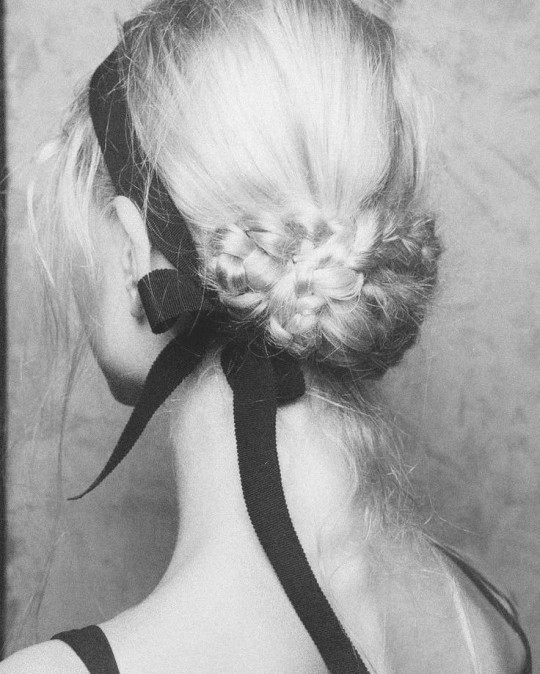




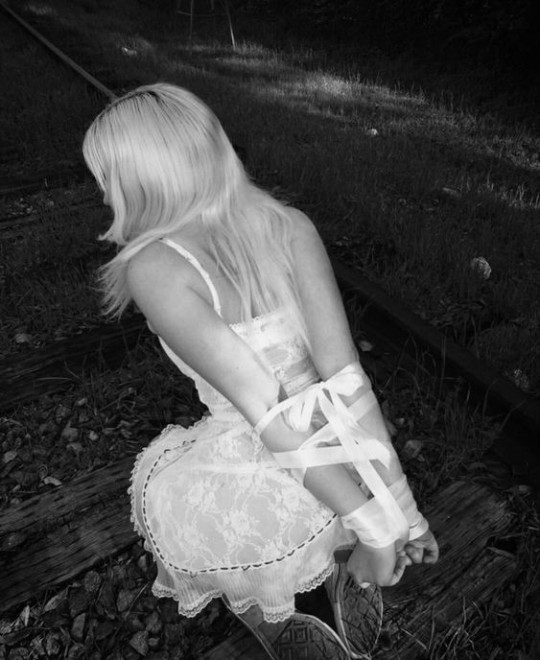

#aesthectic#messy layouts#dividers#fashion#dark icons#dark y2k#Rebelling#staying up late#freedom#adolescence#Black#grey#blue#purple#green#Youth#gloominess#beauty#coping with trauma#vintage
64 notes
·
View notes
Text
based on what we know of touga’s relationship to his own hair as established in the movie, that his adoptive father essentially forced him to grow it out as part of his sexual abuse, it is so fascinating to me how he casually violates utena in the coffin scene by carding his fingers through her hair while she is basically catatonic and in no state to resist. note that he later pulls the same move on her at ohtori and she impresses everyone around her by refusing to take his shit, asserting her boundaries. and then of course he tries it again once he has defeated her, and to signify her state of passive resignation, she allows him, doesn’t even flinch. during the coffin scene, saionji visibly recoils at touga’s action, the implicit violation of it, and implores touga to stop, just as during the scene in the cafeteria, touga’s similar display of smug male chauvinism that utena makes no attempt to resist makes wakaba apoplectic. this kind of creepy display of superiority is paradigmatic of why both wakaba and saionji loathe touga. they find his casual, almost plausibly deniable cruelty to be gutchurningly appalling. as do we, the audience.
but what does it mean that touga exhibits his dominance over utena by touching her hair? that when he first stumbles across a child who, like him, has no hope in a survivable future, has completely given up her soul to a state of nihilist despair, his first instinct is so assert his control over her. unlike him, she is naive, still believes in the illusory promise of the family and its pure, unconditional love, and that is the source of her pain. she has been disillusioned only by something as abstract and inevitable as mortality, but has yet to bear witness to the pain and human suffering that can be caused not by external circumstances, but by other humans. and so touga, in his own state of nihilist despair, nonetheless has power over her through a knowledge she is not yet privy to. his whole life has been an exercise in internalizing the logic of exploitation, of replicating his own abuse through facilitating cycles of violence (the carousel, the ferris wheel, the spinning rose pinned in place upon the frame). and what does touga do, when faced with someone like him, a fellow victim? he does everything in his power to exploit her. and he violates her boundaries by reaching for her hair.
#u#analysis#manalysis#touga#utena#saionji#wakaba#adolescence#ok this was basically the only fever dream fueled piece of analysis that i can actually remember that was also coherent#I should . go back to sleep now
96 notes
·
View notes
Text
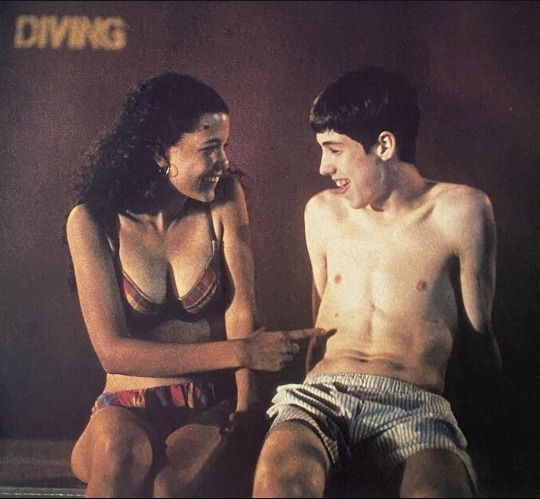
Larry Clark’s Kids (1995)
#larry clark#kids#cinema#90s movies#aesthetic#vintage#old school cool#adolescence#teenagers#eroticism
65 notes
·
View notes
Text


girly room from 2007
21 notes
·
View notes
